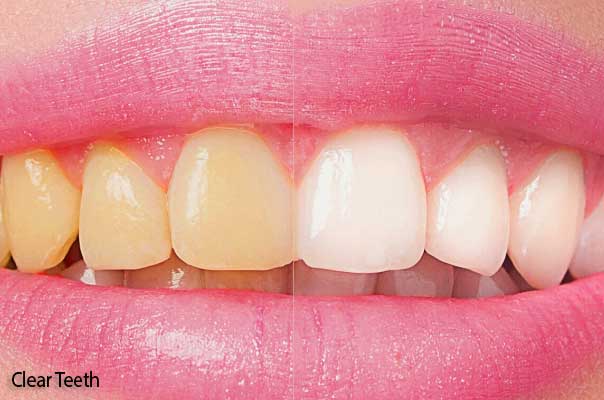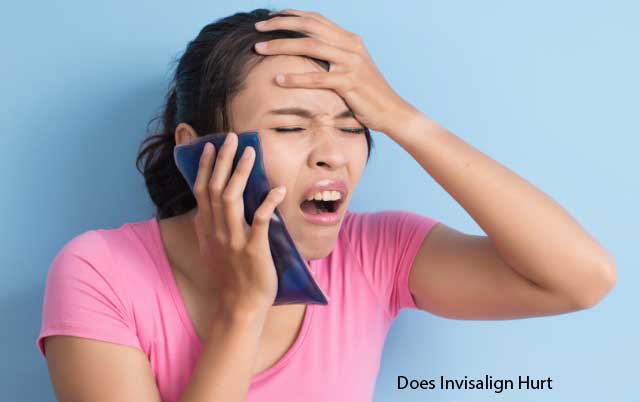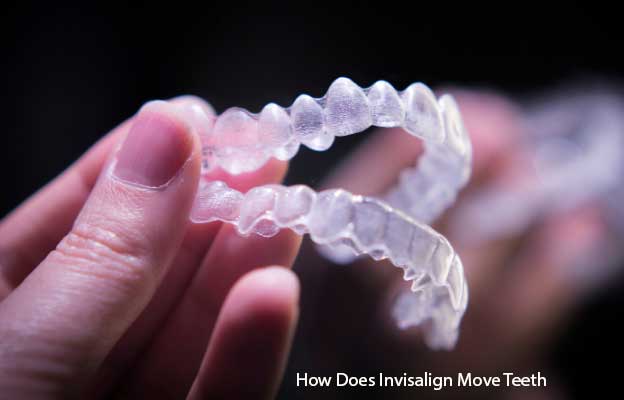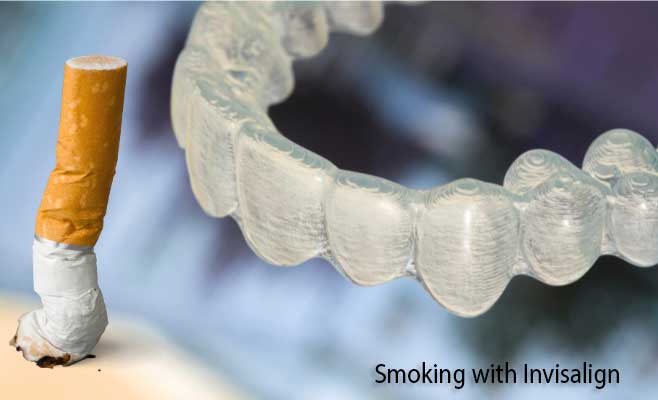You Will Never BelieveThese Truth of Clear Teeth
Do
you nervous about smiling because of your stained teeth? There are multiple
reasons to clear teeth, for yellow or stained teeth such as poor dental
hygiene, everyday drinking of Tea, Coffee, but don't worry we have some trick
to whiten your teeth at home,
Clear
teeth are common and not always a
sign of immediate warning, but should not be ignored. If you start to notice
that your teeth are starting to look a little translucent
You
should as soon as possible contract with your regular dentist while maintaining
your healthy teeth and oral hygiene.
actually,
need to brush our teeth twice a day, Toothbrushing is widely accepted as the
most important thing you can do for your dental health.
Nevertheless,
many people simply do not want to brush. They can find it like an uncomfortable
core and also find that brushing is physically inconvenient.
Do you know what clear teeth are?
The
clear teeth that appear on the incisal edge, transparent are those that have
suffered deterioration. In fact, they have lost a part of hard dental tissue
called enamel.
This situation, which occurs in different
types of patients, can cause aesthetic problems when it comes to laughing or
speaking in public.
If
you have doubts about whether you have transparent teeth or if your teeth are
wearing out too quickly, the best thing you can do is consult your dentist, who
will be the most appropriate person to advise you on possible
What are the Causes of Clear Teeth?
Enamel
tooth gives an opaque white color. If the enamel is damaged or removed, the
result will be a transparent tooth. Many conditions can damage
or lose the coarse teeth.
People
who have celiac disease are more likely to develop tooth decay and damaged
enamel. Some genetic conditions can cause enamel hypoplasia or loss of
enamel-producing minerals, often characterized by dental or pimples, which may
lead to apparent dental treatment.
Can
bring. Other medical factors may include enamel. For example, bulimia causes
gastric highly acidic foods and reflux bacteria from foods that promote enamel
deficiency.
The
obvious cause of teeth is highly dependent on environmental issues and oral
hygiene. Some foods, particularly those that are acidic, can cause enamel
erosion.
Oral
hygiene is not another risk factor as it is not possible to regularly remove
bacteria from the tooth surface to increase the risk of enamel damage.
Which Brush Is Better: Regular or Electric?
There
is no difference. The main thing is that you brush your teeth well twice a day
and use fluoride paste. Choose a brush that is comfortable and pleasant to use.
An
electric toothbrush may seem a more convenient option for people with arthritis
and other diseases of the arms and shoulders. Children also can use an electronic
toothbrush age should be over three years.
How to Brush Your Teeth?
To
keep clear teeth and healthy, brush your teeth always twice a day for around 2
minutes. If you brush your teeth incorrectly, plaque is a bacterial film that
covers your teeth.
May
cause periodontal disease and tooth decay. Brush your teeth to prevent plaque. Give
effort brushing the whole surface of the tooth.
It
is compulsory to brush teeth always twice a day, at the morning and in the
evening after finish eating for 2 minutes. This scheme allows you to remove
food debris from the interdental spaces, prevent the sedimentation of soft
deposits on the teeth and their further calcification.
Toothbrushing
starts from the lateral (chewing) group in the direction from right to left on
the lower jaw, and then from left to right on the upper jaw, successively
grabbing 2-3 teeth and moving the toothbrush towards the front teeth.
To
completely remove plaque from each tooth surface, at least ten paired movements
with a toothbrush must be made.
The
external surfaces are cleaned by sweeping vertical movements in the direction while
massaging the soft tissue from the gums to the teeth, which improves blood
circulation and strengthens them.
A
dentist or health care professional can provide complete guidance on your
dental health and requirements.
How Long You Need to Brush Your Teeth?
So
that the usual brushing is really beneficial, brushing should be daily. It is
recommended that it be performed at least twice a day, spending at least 2
minutes each time
But
often, people finish oral hygiene too quickly, removing only food debris and
leaving plaque. This predisposes to the development of tooth decay and
periodontal disease.
Usually,
people prefer to brush their teeth, preparing for the upcoming exit from the
house. Truly, oral care in the morning can refresh your breath, remove plaque
accumulated overnight, get clear of residual breakfast, and make your teeth healthy and bright.
How to Choose A Toothbrush?
The
advice of your dentist will be of great help in choosing a toothbrush. A normal
brush might be not clean your teeth well, and a hard bristle can damage enamel
and gums. Most often use a brush of medium hardness.
Everyone
want to know what is better normal one or electronic brush, both are good and
work equal not much different, Dentist recommends always brushing your
teeth with an electric brush no more than 2-3 times a week, because otherwise can’t
prevent enamel may be damaged.
Should I Use A Mouthwash?
Although
fluoride-containing mouthwashes prevent tooth decay, do not use mouthwashes
(even fluoride) immediately after brushing.
Choose
a mouthwash at another time, such as after lunch. Do not try to eat or drink
anything for half an hour after using fluoride mouthwash.
How to Treat A Clean Tooth?
However,
when teeth are lost, they cannot grow new layers. Therefore, except for
cosmetics options such as veneers, no treatment reverses the effects of enamel
damage or changes the appearance of the teeth.
Your
dentist treatment depends on the severity of coating modification. In severe
cases, veneers can be used to improve the aesthetics of teeth and protect all
teeth from further damage.
Your
doctor may have dental insurance even if it is not severe. This is a process in
which the resin is applied to the tooth surface and then treated with special
lamps. This protects the covered area, and since the resin is often colored by
teeth, it can also improve the appearance of the teeth.
You
and your dentist can work together to complete your dental hygiene routine and
find new ways to protect your teeth from damage. This will damage or lose your
lining. There are special teeth, whitening, cleansing, and remedies to help
strengthen leftover enamel and protect your teeth.
Floss for Clear Teeth
Besides
brushing your teeth, flossing can also be an option for how to naturally remove
tartar. Flossing is a technique or a way to clean teeth using threads. This
method is believed to be effective in cleaning dental plaque because it can
reach between your teeth well.
This
is better to use floss that is adapted to the condition of the teeth and gums.
Preferably, for those of you who are interested in trying this method, first
consult your doctor about what ingredients are suitable and how to do safe
techniques.
What Is Dental Floss?
Dental
floss is one of the most effective devices for cleaning food debris or bacteria
stuck in the teeth. Before becoming limestone, which is a hard stain forming on
the teeth and needs to see a dentist to get rid of the plaque,
Using
dental floss regularly every day and correctly will help reduce the risk of
tooth decay or other dental diseases.
Dental floss became popular after the change of
nylon material. Formerly produced from twisted silk fibers combined into a long
line and not wax coated.
Nowadays,
dental floss is produced with two types of materials: Nylon Filament and
Plastic Monofilament in various forms such as wax coating, flavoring, and more
convenient to use.
Why Use Dental Floss?
Dental
floss allows you to remove food debris and plaque from tooth surfaces
inaccessible to the toothbrush (for example, interdental spaces). Regular use
of dental floss helps prevent gum inflammation, preserve the whiteness of
teeth, and prevent the formation of tartar.
Choosing to Use Dental Floss
Dental
floss, currently available in the market, is available in a variety of forms,
such as wax-coated floss Dental wax floss Flavored dental floss Tape floss Each
format will have the following characteristics
Dental
floss, wax-coated and non-wax-type dental floss is not different inefficiency, but
wax-coated dental floss may be more slippery or easier to scrub or rub between
teeth
Flavored
dental floss, such as mint, may give a fresh feeling in the dry mouth. Tape
floss Will be wider than other floss types
When
choosing dental floss, choose a type that has small, flat, and flattened
threads when passing through the teeth. For those who have never used May
choose to use wax-coated dental floss for ease of use.
If used after expertise, may choose to use
dental floss without wax coating Because it is sharper Better able to remove
newly-formed limestone stains or consult a dentist in choosing the right dental
floss for each person
How to Use Dental Floss Effectively?
Using
the right dental floss will increase the efficiency of cleaning the mouth to
have good hygiene and reduce the risk of gum disease and teeth. Which can be
complied with the following guidelines
Pull
the floss around 45 centimeters in length and wrap around the tips of the
middle fingers on both sides, leaving the floss wound between 2-3 inches Insert
the dental floss into the space between the teeth and the gums.
By
using the thumb and index finger to control, then scrub or rub in the direction
up and down. Or a C-shaped curve should be done with caution as it may cause
bleeding if the dental floss is too deep in the gums.
Should
use floss for all teeth. May start from the top teeth by sorting from left to
right until all the teeth for easy to remember After that, continue at the
lower teeth.
Including the back of the last tooth After finishing all teeth,
gargle your mouth to remove bacteria plaque on the surface of the teeth and
food particles that remain.
Dental
floss should be waste after use. Should not be reused Because the efficiency of
the dental floss will decrease and there may be bacteria leftover from the
previous use
The
correct use of dental floss will help increases the efficiency of cleaning the
mouth The Dental Association of the United States recommends that dental floss
can be used before or after brushing. With good results, no difference.
However,
most dentists will recommend brushing your teeth before using dental floss once
a day, especially during bedtime.
For
children who have two adjacent teeth, floss can be used under the guidance of
parents. Until able to use dental floss fluently or be aged between 10-11 years
In
the initial stages of dental floss, it may be inconvenient or painful. But the
pain will subside after using dental floss for 1-2 weeks. If the pain doesn't
improve Should consult a dentist
Using
dental floss too harshly will cause pain and negatively affect the tissues
around the teeth. And if flossing too light may cause food particles to remain
stuck in the nook of the teeth
Using Baking Soda to Clear Teeth
Baking soda can be used as a
way to get rid of stubborn tartar. Even known, this material is effective for
removing yellow coral and harden. Not only that, baking soda is also believed
to be a natural ingredient in teeth whitening.
Use
baking soda Another way you can do to clean stubborn tartar is to brush your
teeth using baking soda. Not only effective, but this method is also claimed to
be safe to try.
Not
only that, this content can also protect teeth from loss of calcium and email. It
is coupled with the presence of antimicrobial properties to prevent tooth
decay.
It's
easy, just take one tablespoon of baking soda and mix with a little salt. Stir
until smooth, then use it as a paste to brush your teeth. The results will look
maximum if this is done routinely to keep clear teeth.
Clear Teeth Tips
- ·
wash your hands,
rinse your toothbrush thoroughly with water, rinse your mouth. Then apply the toothpaste
to the entire length of the cleaning surface of the brush
- ·
position the
toothbrush at an angle of 45 ° to the surface of the tooth;
- ·
close your teeth
and start brushing your upper teeth from the inside. Perform 10-15 movements,
then do the same for the teeth on the other side of the upper jaw;
- ·
with
reciprocating movements in the horizontal and vertical direction, clean the
inner surfaces of the teeth facing the tongue (10-15 movements);
- ·
then proceed to
brush your chewing surfaces. It is necessary to perform 10-15 scratching and
reciprocating actions on each side;
- ·
do the same for
the teeth of the lower jaw;
- ·
when cleaning the
front teeth, position the brush perpendicular to the dentition, first perform
reciprocating movements, then circular (total 10-15 movements);
- ·
finish brushing
your teeth with gum massage, which is carried out with closed teeth. In a
circular motion, the brushes carry out a light massage of the gums of the upper
and lower teeth;
- ·
After brushing
your teeth, rinse your mouth with water to remove any toothpaste residue, rinse
the toothbrush thoroughly, and put it in a special glass.
Transparent Tooth Enamel
Sometimes, patients report that the edge of
their teeth, especially the upper incisors, is taking on a more transparent
coloration and with shades between gray and blue as if it had a glassy
appearance.
This problem can manifest itself over the
years and increase with the use of acidic substances. However, there are also
certain patients who suffer from this problem due to poor enamel quality or
very fine enamel wearing.
The dentist has to know how to prevent the
risks of fractures of these more sensitive edges since, in fact, patients with
a transparent incisal edge are those who present with greater breaks or dentalinjuries.
Solutions for Clear
teeth
The
dentist, according to the degree of abrasion of the teeth, chooses the most dentist
may recommend therapy in each case. There are several ways to solve this
problem, such as metal-porcelain covers,
or
more aesthetic and conservative materials, such as lithium disilicate. You can
also choose ceramic veneers, composite veneers, or incisal edge
reconstructions, among others. Once the dentist finds out the cause, he can
choose the most appropriate therapy for each patient for your clear teeth.
Tips to Prevent Transparent Teeth
·
Limit consumption of acidic foods and
beverages, such as foods containing citric acid or carbonated beverages.
·
In cases of
severe erosions, it is advisable to drink acidic food and drink with a straw to
limit contact with the teeth.
·
Drink a glass of
milk or a piece of cheese after a meal because they can offset the acid erosion
in the mouth after eating.
·
After meals, wait
30 minutes to brush your teeth.
·
Use fluoride
toothpaste for the mineralization of the teeth, and always under the advice of
your dentist to keep clear teeth








Very very nice post...bro...keep it up...
ReplyDeleteDon't forget to visit my site also.
I post new post regularly..
GetNewFact.com
Please Do not enter any spam Link in the comment box.